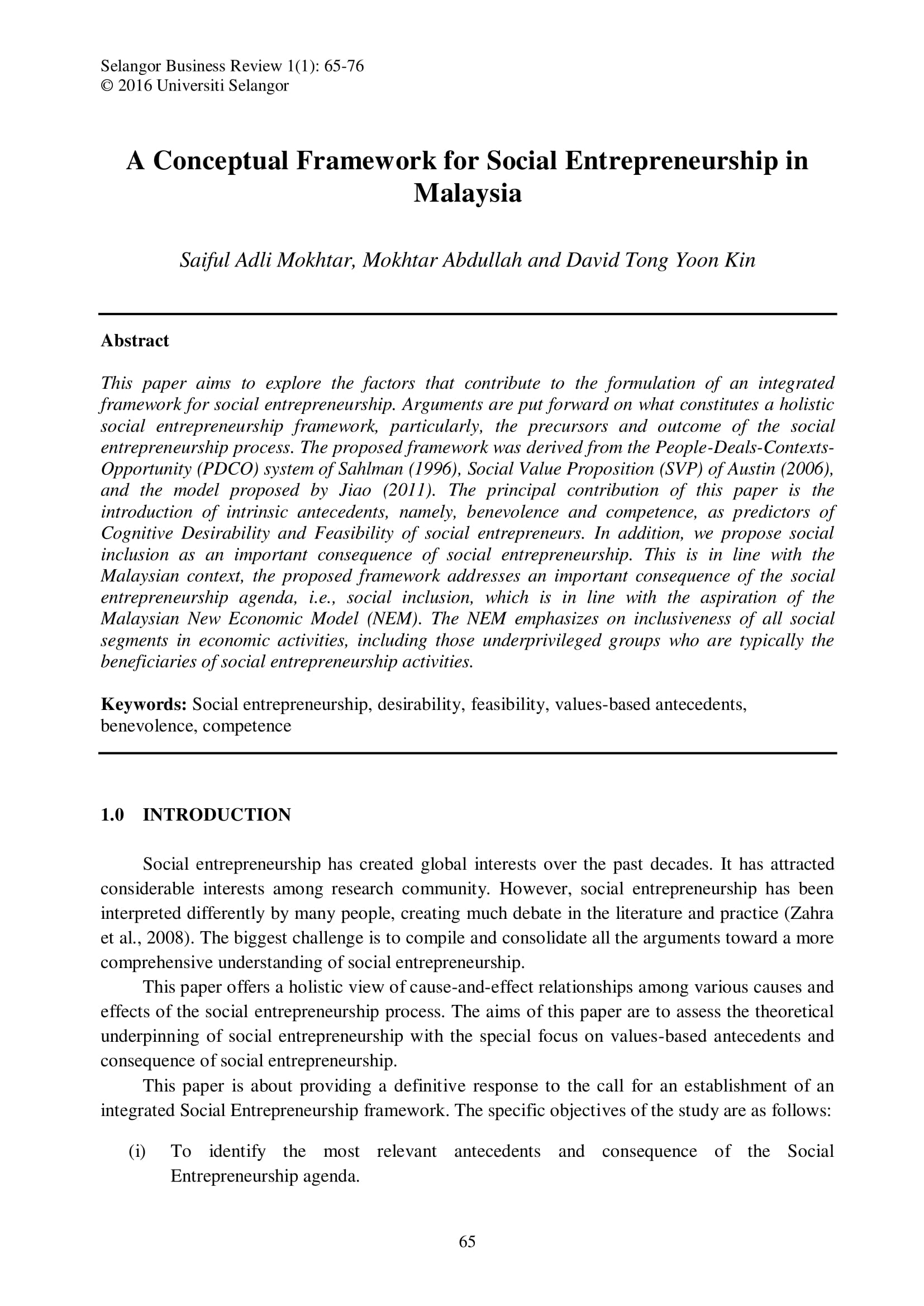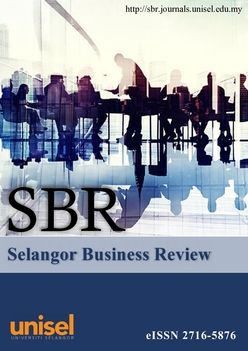A Conceptual Framework for Social Entrepreneurship in Malaysia
Keywords:
Social Entrepreneurship; Desirability; Feasibility; Values-based Antecedents; Benevolence; Competence
Abstract
This paper aims to explore the factors that contribute to the formulation of an integrated framework for Social Entrepreneurship. Arguments are put forward on what constitutes a holistic Social Entrepreneurship framework, particularly, the precursors and outcome of Social Entrepreneurship process. The proposed framework was derived from the People-Deals-Contexts-Opportunity (PDCO) system of Sahlman (1996), Social Value Proposition (SVP) of Austin (2006), and the model proposed by Jiao (2011). The principal contribution of this paper is the introduction of intrinsic antecedents, namely, benevolence and competence, as predictors of Cognitive Desirability and Feasibility of social entrepreneurs. In addition, we propose social inclusion as an important consequence of social entrepreneurship. This is in line with the Malaysian context, the proposed framework addresses an important consequence of Social Entrepreneurship agenda, i.e., Social Inclusion, which is in line with the aspiration of the Malaysian New Economic Model (NEM). The NEM emphasizes on inclusiveness of all social segments in economic activities, including those underprivileged group who are typically the beneficiaries of Social Entrepreneurship activities.
Published
2017-01-02
How to Cite
Mokhtar, S. A., Abdullah, M., & Yoon Kin, D. (2017). A Conceptual Framework for Social Entrepreneurship in Malaysia. Selangor Business Review, 1(1), 65-76. Retrieved from https://sbr.journals.unisel.edu.my/ojs/index.php/sbr/article/view/32
Issue
Section
Articles





 3,026
3,026 2,412
2,412 1,466
1,466